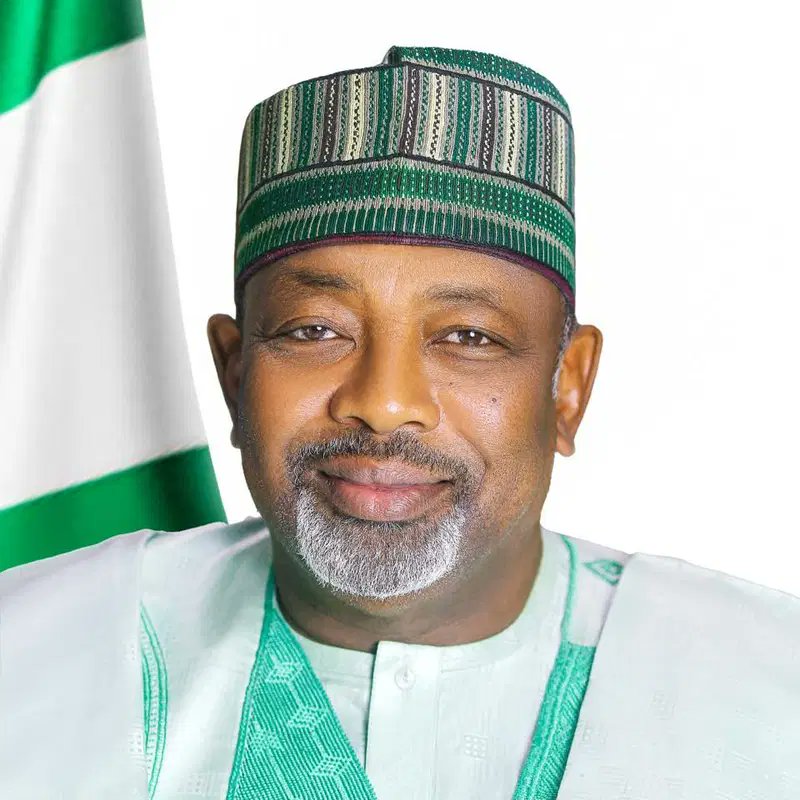The Federal Ministry of Agriculture and Food Security in Nigeria has announced the indefinite suspension of its planned three-day prayer and fasting sessions, initially scheduled to seek divine intervention to address hunger and ensure national food security. The program, set for June 16, 23, and 30, 2025, was intended to involve stakeholders across the agricultural sector, including farmers, policymakers, and religious leaders, in a collective spiritual effort to tackle the country’s pressing food insecurity challenges. The decision to suspend the initiative was confirmed by the ministry’s Acting Director of Information, Ezeaja Ikemefuna, in a memo issued on June 13, 2025, though no explicit reasons for the postponement were disclosed.
The prayer and fasting sessions were part of a broader strategy outlined by the ministry to complement ongoing agricultural reforms aimed at boosting food production and mitigating hunger. According to the initial announcement, the program was designed to invoke divine guidance for favorable weather conditions, improved crop yields, and protection against natural disasters that have historically hampered agricultural output in Nigeria. The initiative had garnered mixed reactions, with some praising the inclusion of spiritual approaches to national challenges, while others questioned its practicality in addressing systemic issues like supply chain disruptions and rising food prices.
The suspension has sparked discussions on social media platforms where users expressed varied opinions, ranging from disappointment to skepticism about the ministry’s priorities. Nigeria continues to grapple with significant food security challenges, with recent reports indicating that over 30 million Nigerians are at risk of acute hunger due to inflation, insecurity, and climate-related disruptions. The ministry’s decision to halt the spiritual program has raised questions about its next steps in addressing these crises, with stakeholders awaiting further clarification on whether alternative measures will be prioritized.
The original plan for the prayer and fasting sessions was detailed in a memo circulated on June 10, 2025, which outlined a structured schedule involving Christian, Muslim, and traditional religious leaders to ensure inclusivity across Nigeria’s diverse religious landscape. The sessions were to be held in collaboration with religious institutions and agricultural associations, with virtual participation options for stakeholders unable to attend in person. The ministry had emphasized that the initiative was not a replacement for practical interventions but a complementary effort to foster unity and hope among Nigerians facing economic hardship.
The abrupt suspension has led to speculation about potential internal or external pressures influencing the decision, though the ministry has remained silent on the matter. Sources close to the ministry, as reported by outlets like TheNewsGuru, suggest that logistical challenges and public feedback may have played a role in the postponement. The lack of transparency has fueled debates about the government’s communication strategy, particularly at a time when public trust in institutional responses to food insecurity is critical.
Nigeria’s agricultural sector has faced persistent challenges, including inadequate infrastructure, limited access to modern farming technologies, and ongoing conflicts in key food-producing regions. The ministry has been under pressure to deliver on its mandate to achieve food self-sufficiency, with initiatives like the National Agricultural Growth Scheme and Agro-Pocket programs aimed at supporting smallholder farmers. The suspension of the prayer initiative has led some analysts to call for a renewed focus on these practical interventions to address the root causes of hunger.
Public reaction to the suspension has been mixed, with some citizens expressing relief that the ministry might redirect its efforts toward tangible solutions, while others viewed the prayer initiative as a meaningful gesture in a deeply religious nation. Posts on X highlighted the polarized sentiments, with some users arguing that spiritual interventions could have inspired collective action, while others criticized the government for prioritizing symbolic gestures over policy reforms. The ministry’s silence on the reasons for the suspension has only amplified these discussions, with calls for greater accountability in how public resources are allocated.
The Federal Ministry of Agriculture and Food Security has not indicated whether the prayer and fasting sessions will be rescheduled or if alternative programs will be introduced to address the spiritual component of its food security strategy. In the interim, the ministry has reaffirmed its commitment to ongoing projects, such as the distribution of subsidized fertilizers and the expansion of irrigation systems, to boost agricultural productivity. Stakeholders are closely monitoring the ministry’s next moves, particularly as the 2025 farming season approaches, which is critical for ensuring stable food supplies.
The suspension of the prayer and fasting program underscores the delicate balance between cultural practices and policy-driven solutions in addressing Nigeria’s food security challenges. While spiritual initiatives resonate with a significant portion of the population, the government faces growing pressure to deliver measurable outcomes in the face of rising food prices and economic instability. The ministry’s ability to navigate these expectations will be crucial in maintaining public confidence and achieving its long-term goals for agricultural development.
In the broader context, Nigeria’s food security crisis remains a complex issue requiring multifaceted solutions. The United Nations Food and Agriculture Organization has projected that Nigeria could face a food deficit in 2025 if current trends in insecurity, climate change, and economic challenges persist. The ministry’s decision to suspend the prayer sessions may signal a strategic pivot toward more immediate, evidence-based interventions, though the lack of clarity on the suspension leaves room for uncertainty about its future plans.




